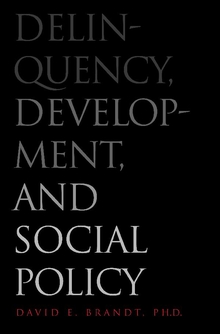Intelligence of Apes and Other Rational Beings
WARNING
You are viewing an older version of the Yalebooks website. Please visit out new website with more updated information and a better user experience: https://www.yalebooks.com
Duane M. Rumbaugh and David A. Washburn
What is animal intelligence? In what ways is it similar to human intelligence? Many behavioral scientists have realized that animals can be rational, can think in abstract symbols, can understand and react to human speech, and can learn through observation as well as conditioning many of the more complicated skills of life. Now Duane Rumbaugh and David Washburn probe the mysteries of the animal mind even further, identifying an advanced level of animal behavior—emergents—that reflects animals’ natural and active inclination to make sense of the world. Rumbaugh and Washburn unify all behavior into a framework they call Rational Behaviorism and present it as a new way to understand learning, intelligence, and rational behavior in both animals and humans. Drawing on years of research on issues of complex learning and intelligence in primates (notably rhesus monkeys, chimpanzees, and bonobos), Rumbaugh and Washburn provide delightful examples of animal ingenuity and persistence, showing that animals are capable of very creative solutions to novel challenges. The authors analyze learning processes and research methods, discuss the meaningful differences across the primate order, and point the way to further advances, enlivening theoretical material about primates with stories about their behavior and achievements.
Duane M. Rumbaugh, Regents Professor emeritus in the Departments of Psychology and Biology at Georgia State University, is the cofounder and recent director of the Language Research Center there. David A. Washburn is an associate professor in the Department of Psychology and director of the Language Research Center at Georgia State University.
“Intelligence of Apes and Other Rational Beings is the best single source where one can find out what apes and monkeys know and how we know it. It is also an entertaining, highly informative candid history of studies of anthropoid learning and cognition, which points the way toward future discoveries.”—Russ Tuttle, Professor of Anthropology and Evolutionary Biology, The University of Chicago
“In this remarkable book, Duane Rumbaugh and David Washburn illuminate the questions of primate intelligence with style, with savvy, and with compassion. This is an intensely provocative—and readable—journey through an important subject.”—Deborah Blum, author of Love at Goon Park: Harry Harlow and the Science of Affection
“An important contribution to our understanding of the evolution and development of intelligence and cognition.”—Gary Greenberg, Wichita State University
"An important, original book that presents a body of primate learning and a perspective that has heretofore not received the attention that it deserves.”—James King, University of Arizona
Awarded the D.O. Hebb Distinguished Scientific Contributions Award for 2005 by the Executive Committee of Division 6 of the American Psychological Association.
Winner of the 2006 Distinguished Primatologist Award from the American Society of Primatologists.
Publication Date: August 11, 2003
35 b/w illus.













